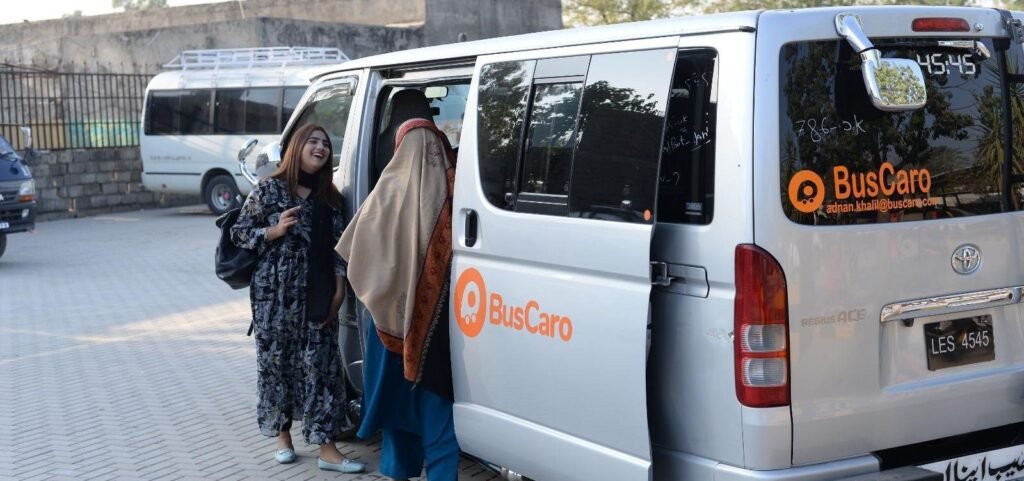BusCaro founder Maha Shahzad
How do ordinary Pakistanis get to work, school and shops every day? Start-up based in Karachi BusCarowhich is announcing today that it has raised $1.5 million in seed funding, believes it has the answer in a country where transportation options are often unsafe, unreliable, or simply out of reach.
BusCaro – one of whose Urdu words means “take the bus” – bridges the gap between Pakistan’s complicated public transport and options like taxis, rideshares and rickshaws, which are too expensive for most people. The business, now operating in Karachi, Lahore and Islamabad, aims to work with Pakistan’s 40,000 minivan and minibus drivers. It finds them passengers by making deals with partners such as employers and schools, effectively securing them a significant number of passengers on key routes.
“When we fill the bus, the driver earns more than driving the odd passenger and the passenger gets a lower fare,” explains BusCaro CEO Maha Shahzad, who founded the business in October 2022. “Most importantly of all, the customer gets to their destination safely.”
That last point is a key driver for Shahzad, who says Pakistani women in particular don’t feel safe traveling in public. 85% of them report being sexually harassed in these types of settings, he explains. Men also need safer transportation options, he adds.
“We can’t even begin to enable and empower women if they can’t travel to school or work safely,” argues Shahzad. “Safe and affordable transportation should be a basic human right.”
For Shahzad, the challenge was identifying a model that enables her to deliver on that promise while building a commercially viable business. With stints at app Careem and global mobility start-up Swvl, he was painfully aware that traditional models in this market were either too expensive for most Pakistanis or proved unsustainable. Swvl, for example, decided to close its business in Pakistan last year.
Using minibus and minivan drivers, Shahzad believes, can offer both affordability and profitability. He says a typical BusCaro trip will cost the passenger – or fare-paying partner – about 150 rupees. The same journey can cost 800 rupees in a shared vehicle or 1,400 rupees in a taxi, he says.
To fulfill its promise of safety, BusCaro checks all its drivers before they are allowed to perform services, as well as the technical inspection of their vehicles. Additional protections include a panic button built into BusCaro’s app, which passengers can use to call for help, as well as technology that allows the company to monitor its vehicles when they are on a route.
There are other benefits to operating this way as well. BusCaro estimates that its alternative mode of transport already reduces Pakistan’s carbon emissions by more than 3 million kilograms every year. Shahzad expects that number to increase over time – as ridership increases, but also as Pakistan begins to invest in more electric vehicles for transportation.
With 20,000 bookings per day, BusCaro is now on target to break even in the first quarter of 2024, Shahzad adds. And there is huge potential for expansion: in the three cities in which the company operates, the target market is a total of 7 to 8 million passengers.
With capital markets drying up last year, Shahzad started the business using her own savings, before several angels provided some additional backing. They were subsequently joined by Orbit Startups, which has a track record of investing in pioneering businesses in emerging and frontier markets in Asia, the Middle East, Africa and the Americas.
William Bao Bean, general partner of Orbit Startups, says he was attracted to the business by its sense of purpose as well as its growth potential. “Diversity and inclusion are hard to achieve when women have to spend 30% of their salary to get to work in a safe and predictable way,” she says. “We supported BusCaro because it enables women and men to book safe, cheap and efficient shared transport to and from work, driving opportunities and opening up the overall economy.”
Orbit’s finances will help BusCaro invest in further improvements to its technology stack, with Shahzad looking to create new features for passengers and partners as the business expands. The company has also begun looking at international expansion.
